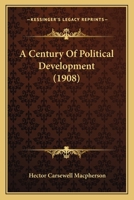Jesus and Money: A Guide for Times of Financial Crisis
In the wake of a sobering global recession, many Christians realize they need to rethink their approach to money. Here respected New Testament scholar Ben Witherington III explores what the Bible does--and doesn't --say about money. Now in paperback, this book clearly and concisely examines what Jesus and his earliest followers taught about wealth and poverty, money and debt, and tithing and sacrificial giving to help readers understand the proper role of money in modern Christian life. Along the way, he critiques the faith-promise and health-and-wealth approaches to these issues, showing what good stewardship of God's possessions really looks like. "This book examines Scripture with diligence and intelligence, seeking the teachings of Jesus and his followers on wealth, poverty, giving, and debt. . . . For all Witherington's scholarship, this work should nonetheless be accessible to most readers."-- Library Journal This description may be from another edition of this product.
Format:Hardcover
Language:English
ISBN:1587432749
ISBN13:9781587432743
Release Date:January 2010
Publisher:Brazos Press
Length:192 Pages
Weight:0.80 lbs.
Dimensions:1.0" x 6.0" x 9.0"
More by Hector Carsewell Macpherson
Customer Reviews
5 customer ratings | 5 reviews
There are currently no reviews. Be the first to review this work.


























